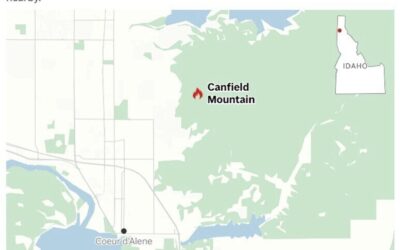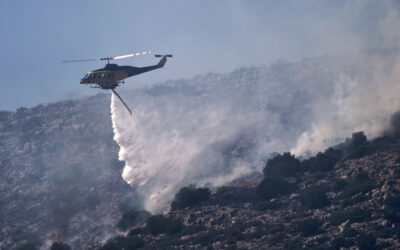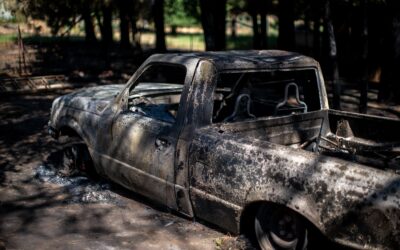If you’re anything like me, you might think you know what your boss is thinking when he or she talks to you. You think you can tell by the expression on their face or the particular words they use. Are they happy with me? Do they think I’m doing a good job?
I usually think I can tell what someone is thinking by their body language and of course my exceptional intuition. But if you’re a female firefighter with a male boss or maybe a firefighter with a different racial or cultural background from your supervisor, you might not have the same foundational framework as your boss, making it even more difficult for you to know where they’re coming from. In this month’s story, I’ll demonstrate just how wrong we can be… or at least how wrong I’ve been.
Years ago, I was in eastern Oregon working on a large wildfire. A few years before, I had resigned my position as a Captain at a Fire Department and now had just graduated with my master’s degree in fire/forestry management. I hadn’t yet gotten a new job. But it was a very busy season and as is often the case, the agencies were looking for help. So, I signed up as an AD (temporary employee for you non-fed firefighters) and flew up to a part of the country I had never fought fire in or even visited. It was beautiful and I was just happy to be out for another assignment. I had spent most of the summer working as an AD on fires throughout the western US. Now it was late August and eastern Oregon still hadn’t received any rain and was on fire.
There were a lot of fires and some major blow-ups while I was there. I was new to this fuel type and geography and working as an AD, I didn’t know anyone. But I already had been a firefighter for 22 years and felt confident in my abilities as a Division Supervisor.
I was living back east at the time and was just so happy to be back in the mountains and on a fire. I would have worked as the last McCloud on a crew just to be out on a fire. So no matter what fire or what position I found myself on the IAP each morning, I was thankful to be there. Imagine seeing huge salmon splashing and swimming in a tiny stream up in the mountains as you’re walking in to your division. I grew up in Arizona and had never seen such giant fish in such a miniscule bit of water. But here I was, hiking in the beautiful mountains of eastern Oregon and managing my resources on a very active Division. I was happy as a pig in slop.
One day, at the morning briefing, I realized I wasn’t on the IAP. Instead I had been reassigned to a new and growing fire just over the range from our camp. I was directed to drive there with several strike teams of engines and crews to meet our Branch Director. The dozen or so engines and crews drove the 2 hours around to the new fire to meet my new boss.
We met him at a drop point and were directed to “stay put” while he drove up the mountain to scout out the fire and determine where the best location to anchor in and start working would be. My attitude was pretty positive. I was living the life!
When the Branch Director left, he was quite clear to remain at the drop point until he came back down to give us our assignments. All the resources sat around and talked and learned where we were all from. Those resources came from all over the US. Even though I wasn’t a local, those eastern Oregon mountains felt familiar. Kind of like the mountains of northern Arizona where I was from. So we waited and talked and waited some more.
It had to have been close to two hours when the other overhead and I started to realize how long we had been sitting there talking.
“Someone ought to go up and check on that Branch Director” said one of the Strike Team Leaders.
“Not me” I replied. “He was pretty adamant to stay put.”
Someone else said, “He could be hurt or have trouble with his truck. He’s been gone a long time.”
They kept looking at me. But the Branch Director was not only clear in his words. He was a bit intimidating. “Branch” was a big guy with facial hair and a no-nonsense way of talking. I didn’t want to start out on the wrong foot with him.
After a bit of dirt kicking and looking around trying to think of a reason not to go, I finally said, “Ok, I’ll head up the road and see if I find him.”
I drove my truck up the dirt road past several steep switchbacks for a few miles when I saw his truck parked on the side of the road. I didn’t see him at first. He wasn’t near his truck. But after looking around, I finally saw him coming through the trees and smoke.
“Hey,” I said. “Just wanted to make sure you were ok. You’ve been gone for a bit. Just checking.”
“Did I tell you to leave the drop point and come up here?” Branch sounded pissed.
“Didn’t I say to stay down there until I told you to come up here?”
“Uh yea,” was my reply. “I’m going back down now. Sorry.”
I didn’t want to get on the wrong side of my new supervisor. He seemed angry that I had directly disobeyed his direction. But heck, I was just checking on him.
“No worries,” I said. “I’m going back down now.”
“Wait, wait. What’s your assignment? What are you here as?” He asked.
“Well, huh, I’m a Division Sup,” I said.
The Branch quickly changed gears and gave me a briefing about where the fire was, where the roads were and what he wanted me to do with the engines still waiting down on the main road.
“Get those engines and crews up here and get them lined out, Now!” was all he said to me.
I felt more comfortable. At least now I had a task and the business of firefighting was a comfort after pissing off my Branch Director. The Branch was all business as he got back in his truck and roared off in a cloud of dust and smoke.
I started calling the Strike Team Leaders on the radio and had them come up. After a quick briefing all the engines were getting to work and I started following up on their progress. Some of these firefighters were pretty green and their progress was slow. So I had a lot to follow-up on. But for the most part, we were making progress as hose lays were going in and line was getting cut.
My communications with Branch was going ok. He seemed preoccupied and spoke in short, curt sentences. There was no shooting the breeze with Branch. No casual conversations. When something didn’t get done quickly enough or a hotspot was still putting up a column after it was supposed to have been taken care of, I might hear from Branch on the radio.
“Division Romeo, Branch 1.”
“Go ahead Branch 1.”
“I told you, I wanted that hose lay installed down to the second landing. I want it done now! It had better be in by the time I come back.” He barked over the radio.
“Copy that Branch 1” I replied.
I thought, “wow, that guy is intense, and I don’t think he likes me very much.”
It seemed that I couldn’t get things done fast enough for Branch. But my resources were green and not used to firefighting in the mountains. They were good folks but just a bit out of their element. To add to our ragtag identity, Branch was a local FMO and I was an AD that he didn’t know. He probably didn’t think much of me. But regardless, we were making progress on the fire and I was getting to know some decent folks from all around the country. Not to mention, I was working in some of the most beautiful country I’d ever seen. I was having a great assignment even if my supervisor thought I was a drone.
After a few days, when my division was cooling down, Branch told me to take a helicopter ride and scout where our next section of line was going to go as we chased the fire up the mountain. Great, excellent! I was going to move forward. I hated being left behind to hold and mop the cold divisions when others were being bumped ahead to the hotter part of the fire. I thought that there must be a major shortage of Division Sups. Otherwise, Branch would have left me behind to mop the cold division.
When I got into camp late one night, I ran into the type 1 Incident Commander.
He said, “Bobbie, I hear you’re doing a hell of a job out there.”
I just looked at him oddly and said, “thanks.” I mean, who could have told him that? I was not a local. No one knew me on the fire and Branch surely didn’t think much of me.
The next few weeks continued with Branch barking at me but giving me great assignments. It was one of my best fires. Challenging, exciting, great crews and beautiful scenery. I didn’t talk much to Branch because I was sure he thought I was useless. But he did give me great assignments. All I could do was shrug and think, “whatever, I’m having fun.”
Late one night, Branch caught me coming back into camp from the line.
“Hey Bobbie, before you demob tomorrow, I want to do your performance evaluation.”
“Ah shit” I thought. “This isn’t going to go well.”
Oh well, It will be fine. I’m an AD. I’m surprised they’re even doing an evaluation for me. But the next morning as we sat down in one of the dining tents after breakfast. My eval was already filled out and he passed it across the table to me.
Branch said, “ya know, you’re one of the best Division Sups I’ve ever had work for me. If you’re ever looking for a job, let me know.”
I was shocked. What did he say? He thought I did a good job? Wow. All I could say was “thanks.” And as a matter of fact, I was looking for a job. And you guessed it, he helped me get hired. The rest is history. He had a huge impact on my career.
I thought I could read body language. I thought I knew what he was thinking. I had written this good guy off because he was gruff and tough and looked it. He didn’t make small talk with me. Maybe he didn’t even like me. But he respected the work I did. Maybe I was just overly sensitive. But the lesson here is critical for all of us, especially if you’re in the minority on your crew. You could be female or a racial minority. Maybe you took a position in a tiny agricultural town but you’re from a large urban area. It could be any number of things that makes you different from your boss. There might not be a good or quick personal connection. But don’t assume you know what he or she is thinking.
There is an equal responsibility on all you supervisors as well. You know how it is when a new person comes to your crew or shift. Maybe you’re a hunter and this new guy doesn’t hunt or camp. Maybe you’re all a bunch of gearheads and the new crew member drives a Prius. Be aware how you’re coming across to your new crew member. Inclusivity is critical for crew cohesion.
But as the unknown entity on a crew or organization, don’t assume you know what people are thinking. Work hard and perform like you know you should. In the end, that’s the key to fitting in at work. And the next time that big, tough mustache yells at you, don’t assume you know what he’s thinking. Smile and enjoy the job.
Now Available
Both Sides of the Fire Line is Bobbie Scopa’s uplifting memoir of bravely facing the heat of fierce challenges, professionally and personally. It’s available now.
Order from Amazon Order from Barnes & Noble
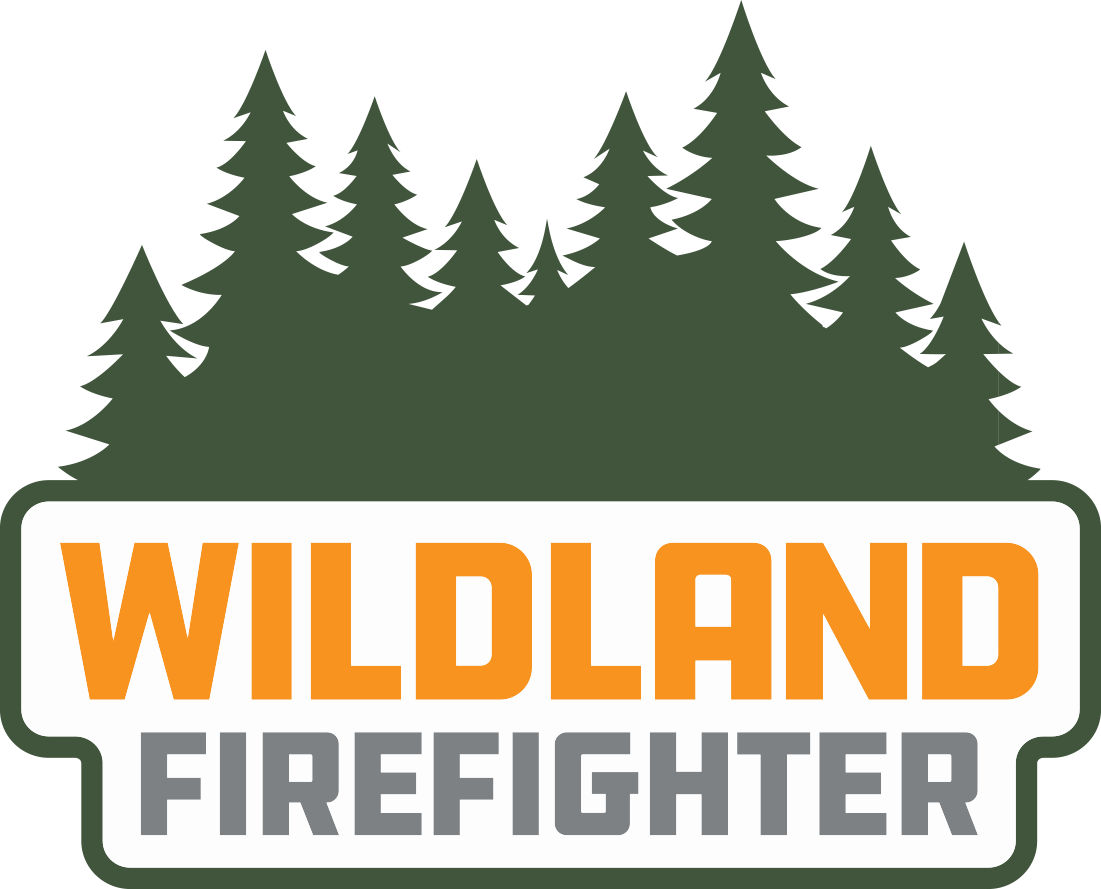
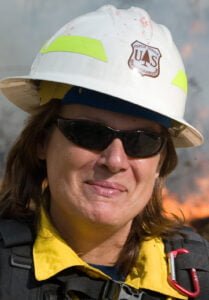 Bobbie Scopa started her career as a seasonal firefighter in 1974. After graduating from Arizona State University, she went on to work in fire and natural resource management. Eventually she left the wildand agencies to work full time for a structure fire department. She finished her Masters in Forestry at NC State then went back to the US Forest Service and BLM eventually becoming the Assistant Regional Fire Director in Region 6. Bobbie has spent many years working as a type 1 and 2 Operations Section Chief. You can listen to Bobbie tell audio stories from her long career at BobbieOnFire.com. She has also recently completed her memoir titled “Both Sides Of The Fire Line”. It will be available through Chicago Review Press late summer of 2022.
Bobbie Scopa started her career as a seasonal firefighter in 1974. After graduating from Arizona State University, she went on to work in fire and natural resource management. Eventually she left the wildand agencies to work full time for a structure fire department. She finished her Masters in Forestry at NC State then went back to the US Forest Service and BLM eventually becoming the Assistant Regional Fire Director in Region 6. Bobbie has spent many years working as a type 1 and 2 Operations Section Chief. You can listen to Bobbie tell audio stories from her long career at BobbieOnFire.com. She has also recently completed her memoir titled “Both Sides Of The Fire Line”. It will be available through Chicago Review Press late summer of 2022.